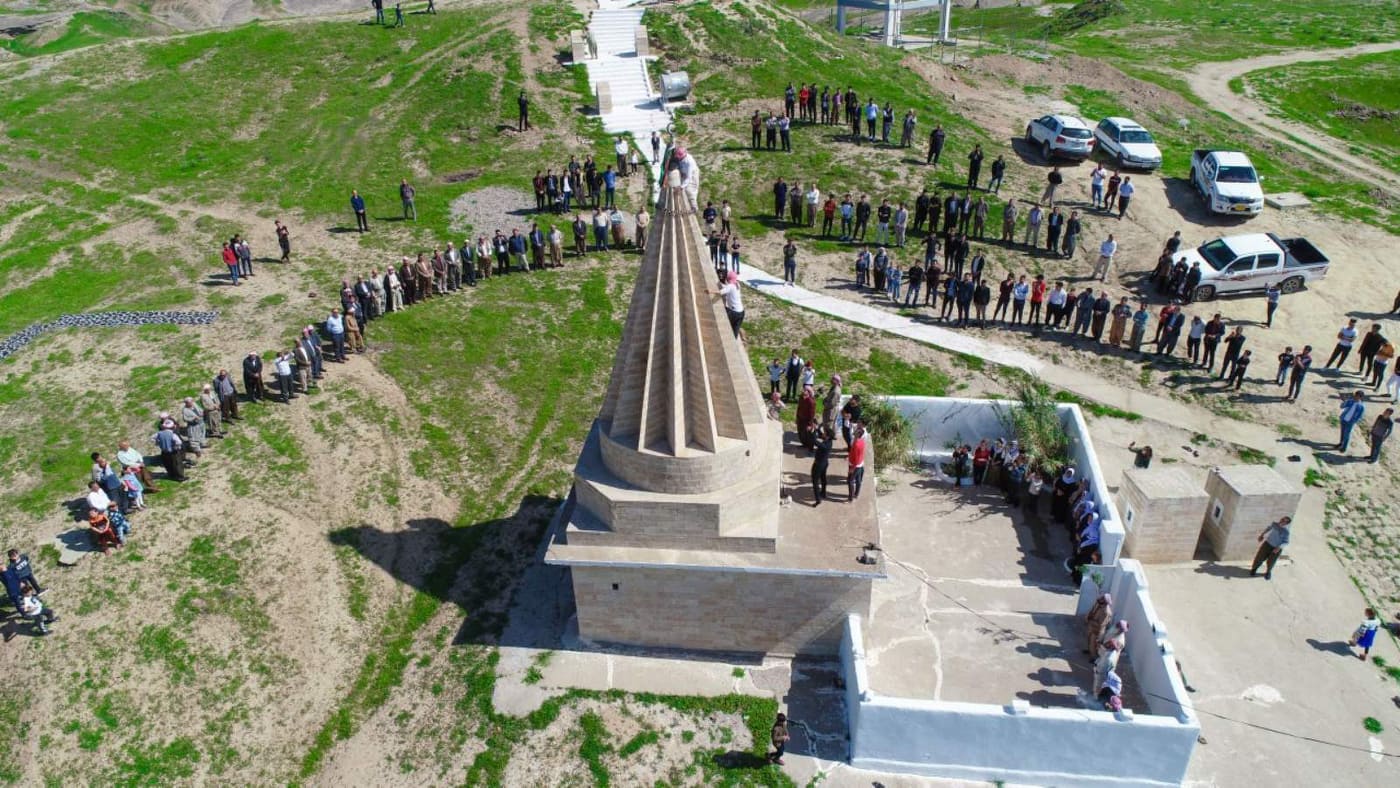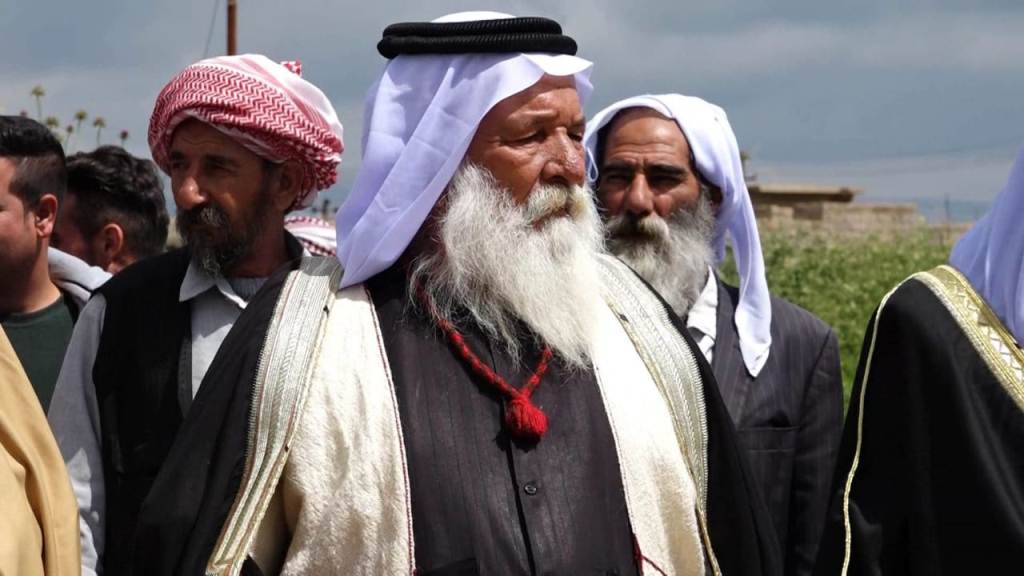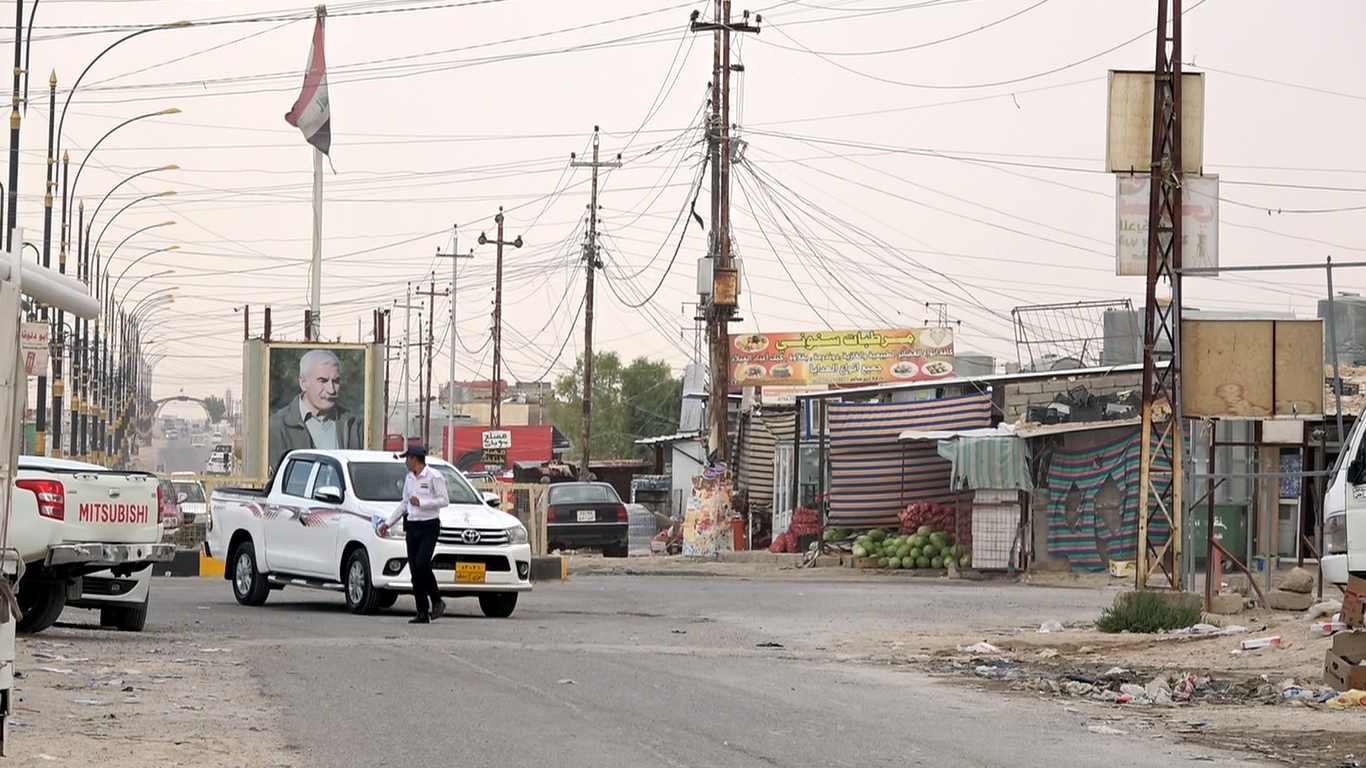While Yazidis form the majority in Shingal district, they are a minority in governing positions.
According to official numbers from the Shingal administration, out of 11 departments, only three of them are headed by Yazidis.
The interim mayor of Shingal district, Fahd Hamid, told KirkukNow: “Of the 11 departments, there are three Yazidi individuals, plus a position in security. 80% of the district’s inhabitants are Yazidis, and according to this metric most positions should have been filled by Yazidis.”
We have requested Iraqi [government] officials to appoint Yazidis to some administrative positions dozens of times, but to no avail
According to official statistics, the total inhabitants of Shingal district is more than 100,000.
Fahd Hamid, himself a Yazidi, says that only the departments of Agriculture, Municipality, Education and Police are led by individuals from a minority.
The Shingal district has two administrations; an interim one set up after the events of 16 October 2017, which is located in Shingal town, the other was set up in 2013 and operate from outside the district; in Duhok.

Nineveh Plain, April 2019 – a religious gathering at a Yazidi temple – Photo by Najm Khatari
Shingal’s interim mayor said: “We have requested Iraqi [government] officials to appoint Yazidis to some administrative positions dozens of times, but to no avail; they don’t respond, we have given up hope.”
The mayor thinks that Iraq has a history of treating the Yazidis unjustly and that that will not be remedied easily.
The Yazidis were given one high position in Nineveh Administration; Saido Chato was the administration’s chairman in 2018. But that administration was dissolved and the position doesn’t exist anymore.
“The Yazidis are counted as second- and third-class [citizens] in Iraq and the Kurdistan Region [of Iraq]. They are only needed during election times, and later the promises [made to them] are not fulfilled,” said Naji Haji-Alo, an activist from Shingal.
Naji added that since the fall of the Baath regime in 2003, most of governing positions are filled by individuals of Arab ethnicity.
Naji further explained to KirkukNow that there are many individuals among the Yazidi community possessing high degrees and expertise, but they are ignored.
Even if the Yazidis were to form 95%, not 80%, of Shingal’s population, they would still not be given administrative positions
“Even if the Yazidis were to form 95%, not 80%, of Shingal’s population, they would still not be given administrative positions.”
Naji thinks that the marginalization of the Yazidis is all the more egregious if the magnitude of the injustice and oppression they’ve had to endure taken into consideration.
The Yazidis have only one seat at the Iraqi parliament according to its quota system. There were attempts to secure a seat at the Kurdistan Region Parliament according to the same system, but they were ignored.
Sharif Naif, a member of the Yazidi community and head of Agriculture Department in Shingal, describes the current manner of filling positions in their district as “a great injustice.”

Nineveh, April 2019 – the inauguration of Giruez subdistrict’s administration chairman – Photo by KirkukNow
“Most of the administrative departments are in the hands of other religious and ethnic components in Shingal,” said Sharif and explained further that “the reason for that injustice is the absence of strong support for Yazidi rights.”
According to KRG (Kurdistan Regional Government), the Yazidi community in Iraq consisted of about 550,000 citizens. Of that number, 360,000 were displaced and more than 100,000 immigrated.
Next to the Yazidis, the Christians in Nineveh are also discontent and have repeatedly asked to have a leading role in administrating their regions.
The Shingal District lies about 120 km west of Mosul City, and falls under the administration of Nineveh Province. It fell under the control of ISIS in August 2014 and was retaken in December 2015.





